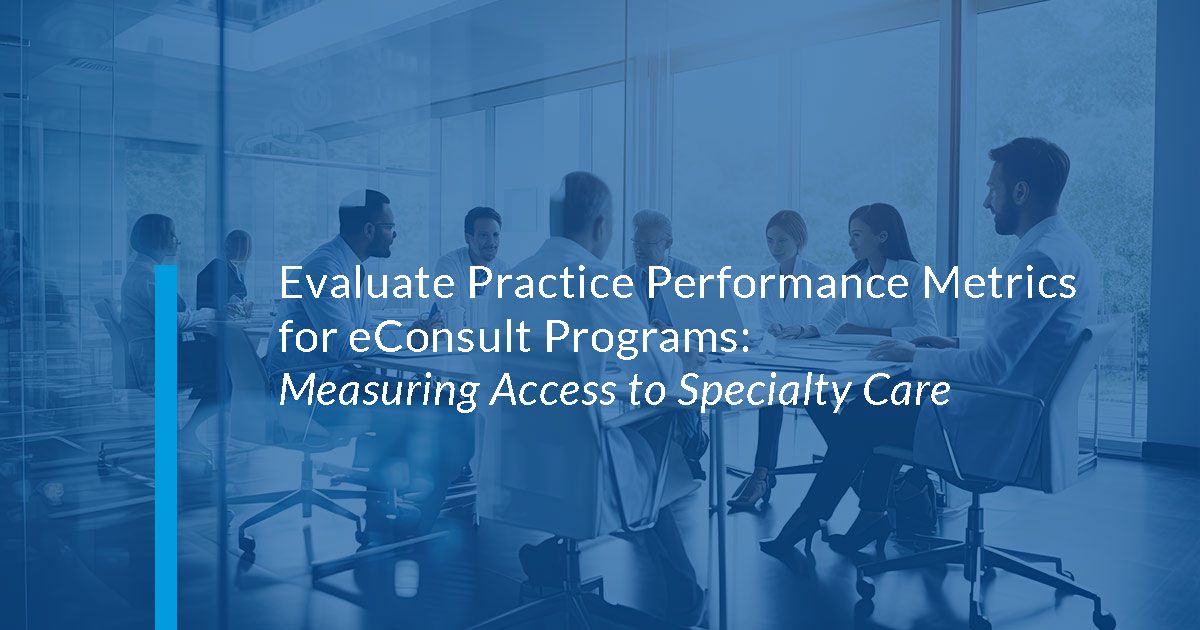Why Specialty Care and Spending Matter in a Value-Based World
How Does Specialty Care Intersect with Value-Based Payment
That is where we are in terms of value-based payment, that is the ecosystem with which you all are thinking about specialty care in. I hope if anything, you sort of, uh, kind of take away a few key points from those slides. The first is that value-based payment is not a fad. It’s not going away. It certainly is here to stay, and it’s going to be the method of payment that we see moving forward. So if you have been worried about that or just concerned that you didn’t wanna spend your time worried about something that was possibly going to be put on a back shelf you have nothing to fear. Focusing on value-based payment is a strategy for business success without a doubt. On the flip side, there are some people sometimes that ask me, you know, I think all I hear about is value-based payments.
I don’t think that there’s any, any upward momentum here. Everybody’s already in a value-based arrangement. Everybody’s already taking on risk. I think I hope these slides show you that there’s still a lot of room to grow. And so if you’re not yet in value-based arrangements there is plenty of time and plenty of room to get yourselves into that. However, just know that does have a ticking clock to it. So getting started right away is always a, key strategy there for, for you to be successful in value-based payment. So we’re here today to talk with Arista MD about specialty care. And so the big question now that you sort of have a background in, in VBP is how does specialty care intersect with value-based payment? And of course, we can’t take the whole day talking about all the different models of VBP.

Evaluate Practice Performance Metrics for eConsult Programs:
Measuring Patient Access to Specialty Care
With considerable time and effort, at-risk practices identify patients at high risk of serious health events. We want to use this same information to develop an eConsult strategy.
- ED use – a costly alternative to a specialist visit.
- Unscheduled or canceled specialty care appointments.
- Boomerang appointments to primary care.
Increasing access to specialty care is the goal. Together, we can track and communicate which specialties are most:
- Needed by the patients you serve
- Likely to improve outcomes
- Appropriate for eConsult
- Valuable to your practice
Identify Specialties with Long Appointment Wait Times
There are many reasons why patients must wait too long to get an appointment with a specialist.
- Not all specialists accept Medicare and Medicaid.
- Doctors in many specialty areas are unevenly distributed across the country.
- Patient referrals are often scheduled by the urgency of the condition.
- Current patients are prioritized for appointments.
Merritt Hawkins reports that the nationwide average wait time to see an orthopedic surgeon is relatively short – just 16.9 days. However, looking at the average can be misleading.
- This average is a 48% increase when compared to 2017
- Getting an appointment with an orthopedist varies tremendously by location – San Diego averages 55 days!
Several factors impact appointment wait times. Not all specialists accept Medicare and Medicaid. Specialists are often clustered in metropolitan areas and unevenly distributed across the county.
Patient’s are less likely to schedule and attend a specialist appointment:
- When the wait time is extended.
- Travel distance to the specialist is significant.
- Cost of the appointment is high — the patient has high-deductible insurance, or the specialist is out-of-network.
